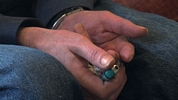Few issues in women are more hidden than sexual addiction. Depression, anxiety, even childhood sexual abuse and eating disorders receive more attention. Neither the clinical field nor the recovery community has directed much attention to this secret struggle in women. A Google search reveals only a handful of professional articles and far fewer books about women’s experience with sexual addiction. The vast majority of material on the topic is about men and written by men. Categorically, sexual acting out is largely considered a male phenomenon, much like it was first thought that alcoholism primarily affected only men.
Even cultural standards for feminine behavior limit women’s expressions of sexuality more than men’s practices. After all, boys will be boys. For sure, women themselves rarely talk about their personal struggles with sexual addiction. The enormous shame that surrounds sexual sin is experienced exponentially by female strugglers. Madonna or whore? Society, and especially the Church, allows for little room in between. Few women are willing to risk the possible judgment of disclosing this issue, even to counselors. “I’ve been in therapy nearly two years and I like my counselor. He’s a good Christian man and he’s helped me a lot. We’ve talked about my family and my sexual abuse, but I could never tell him about my sexual addiction.”
This female caller to Bethesda Workshops, a national ministry for treating sexual addiction and co-addiction, is not unusual. More often than not, women say, “I thought I was the only one.” I know that when I personally entered recovery from sexual addiction in 1991, I was convinced no other Christian woman struggled with out-of-control sexual behaviors. Shame keeps women silent, and thus still shackled in their sin. Christian counselors and the Church at large must respond by breaking the silence that surrounds this growing problem. The challenge is to speak from a base of empathic knowledge, rather than ignorance or misunderstanding. Differences Between Female and Male Sex Addicts Current statistics indicate at least one-third of sex addicts are women. I believe eventual information will reveal women comprise nearly one-half of those who are sexually addicted, just as alcoholism is fairly evenly divided between the genders.
While some women are represented in each presentation of sexual addiction, in general, women’s acting out is more relational. Addicted to love. Females often are “addicted to love,” and two-thirds of female sex addicts fall into this category of love or relationship addict. These women are promiscuous before marriage and move from relationship to relationship, sometimes even simultaneously. They have affairs after marriage, both sexual and emotional. Women in droves, however, are joining men in sexual pursuits on the Internet. One in three visitors to an adult web site is female, and nearly 10 million U.S. women access such sites each month.1 Although women are online significantly less than men according to a study done in early 2000 (14% females as opposed to 86% males), women are over-Mar nie C. Fere represented among those who progress beyond “recreational use” to the realm of addiction.2 Typically, women’s pattern of wanting romance and relationship as part of their sexual activities translates to the Internet. Female users strongly prefer chat rooms where they can “relate,” instead of solitary activity like accessing pornography, which is preferred by most men. A major study found women were disproportionately represented in the interactive mediums, such as chat rooms, which were preferred by 70%.3 Even those women who want the same thing as most men—the casual sexual encounter— tend to couch their activity in some semblance of a relationship (however fleeting) instead of anonymous sex.
A key difference between the genders surfaces in the way women progress in their Internet sexual activity. According to a small study, females who frequent sexual chat rooms are more likely than men to seek real-life meetings with their online sexual partners. An astounding 80% of female cybersex users admitted this behavior.4 This escalation of sexual activity clearly has enormous implications and risks. A growing number of women, though, are looking online at the more traditional kind of pornography. Generally speaking, most women who choose visual material are younger females, ages 18–34. This generation was raised in a media-saturated culture and is more accustomed to visual stimuli. Advances in neuroscience indicate that our mediadriven culture is literally altering the human brain—and not just men’s.
Today’s young women seem equally visually oriented. It is no surprise, then, that females are drawn to pornographic pictures. Poly-addiction is common. Most addicts struggle with more than one kind of addiction, and female sex addicts are no exception. Many men who act out sexually also abuse alcohol or are involved in problematic gambling, which is on the rise. Frequently, male sex addicts are also considered workaholics. By contrast, female sex addicts are more likely to struggle with food issues, especially binge eating. Often a woman vacillates between the core addictions of sex and food, and her weight illustrates the jump. When a woman is out of control in her sexual behavior, for example, she may decide that being overweight is the best protection against her behavior, so she binges consistently. After a time, this woman often feels such shame about her appearance that she begins to diet and act out sexually in an attempt to prove her desirability. Eventually, she feels better about her thinner body image but terrible about her sinful behavior, and the cycle repeats. Definitive research is needed to validate this observation, but clinical and anecdotal evidence supports the theory.
Identifying Sexual Addiction in Women. A key difference between men and women concerns the identification of sexual addiction in each population. Fortunately, there is an increased focus on men who act out sexually, especially regarding Internet pornography. The problem is losing some of its stigma as reports reveal the majority of Christian men at least occasionally indulge. Prominent Christian artists have gone public with their struggle. Ministries and programs are readily available to help the man who wants help. Women, though, are sinking in sexual sin without a ready life raft. Few programs, either faith-based or secular, even address sexual addiction in women, much less offer gender-segregated treatment. Most counselors are no better than the culture in knowing how to help the woman who struggles.
In fact, few counselors are able to identify her problem in the first place. Sexual addiction may never cross a counselor’s radar when the client is female. Because few women openly admit this struggle, recognizing the issue is especially hard. Christian helpers must be sensitive to any red flags of possible addiction, such as a history of childhood sexual abuse, eating disorders, father wounds, promiscuity, multiple abortions, affairs or STD’s. The best thing a counselor can do is simply ask about a woman’s relational and sexual behavior. Do not assume there is not a problem just because she does not mention one. Fill your counseling room with a clear spirit of God’s grace, and gently ask about any sexual secrets. Give permission for her to admit failure in this area. Remember that it may take a long time before a woman feels safe enough to disclose her sexual addiction, and ask again each time you sense an opening.
Consequences for Female Addicts Female sex addicts experience many of the same life consequences from their addiction as men. Emily (not her real name) lost her job as an advertising executive because of her repeated use of online pornography on her work computer. Hannah was asked to leave her championship softball team when her sexual involvement with an assistant coach impacted team morale. Women, though, experience some critical additions to these common consequences. The most obvious one involves unwanted pregnancy. Consistently, at least 25% of the women who attend a Bethesda Healing for Women workshop have had at least one abortion because of an unplanned pregnancy that resulted from their addictive behavior. Women also face added risks from sexually transmitted diseases, because most STD’s are asymptomatic in women.
Genital herpes is a frequent diagnosis, and human papillomavirus is the most common sexually transmitted disease in women. A diagnosis of cervical cancer caused by HPV was the consequence that finally broke through my own denial about my sexual addiction. Looking for Love: the Common Quest “Sexual addiction” is actually a misnomer, though it seems to be the term that will persist. For women and men alike, this problem is about issues much deeper than behavior. One woman, a married preschool teacher and mother who was active in her church, also masturbated compulsively, frequented sexual chat rooms, and had affairs. With tears streaming down her face, she declared, _“Don’t people understand that this has nothing to do with sex? It’s not about sex at all. It’s about that desperate need for love, for acceptance, for affection, and for affirmation_.” Every sex addict I have ever worked with confirms her eloquent declaration.
It certainly was true for me.God intended for sexual activity to be the most fulfilling expression of a covenant relationship between husband and wife. Indeed, scripture uses the metaphor of bride to describe Christ’s relationship to the Church, not because of the specific sexual connection, but because of what it represents: the sacrificial, exclusive intimacy of a spiritual union. Genuine intimacy requires honesty, vulnerability, maturity and commitment. Its foundation is a belief in the worth of oneself and others as chosen children of God. It thrives in an atmosphere of mutual respect and sacrifice. How little that describes most human experience! Too often, homes and churches are dictated by appearances and driven by shame, places where people become afraid to disclose their imperfections and ask for help. We are out of touch with our feelings, which renders us unable to be vulnerable about our internal experience. We are motivated by selfishness and lack the maturity to resolve conflict and forgive. We live in a disposable society, where it is normal to exchange someone who does not suit us for another who might.
We doubt we are lovable and believe we must prove our worth. Many sex addicts are also victims of childhood sexual abuse, which further compounds their woundedness. This violation solidifies the confusion between sex and love, which is at the core of sexual addiction. It exacerbates shame. It breeds self-doubt. Predictably, Satan capitalizes on this sad state of affairs. The evil one presents sex as the easiest, most convincing substitute for authentic intimacy. Indeed, sex is a false, but enormously compelling, solution to the heart’s deepest longings for relationship. Propelled by the convincing messages of our culture, many people confuse the behaviors of sex with the sincerity of love. They use sex as a measure of acceptance and believe that sexual touch represents affection. Sometimes, because they do not know any other way, women, like men, may accept the easy affirmation of sexual “love,” even to the point of addiction.
An intimacy disorder. Sexual addiction is best understood as an intimacy disorder. Sex addicts are not addicted to either sex or love. They are addicted to the hope that they are lovable, and they latch onto sexual encounters as proof. Christian helpers must understand that sexual addiction is a matter of the heart. Unless a woman finds healing at the deepest levels, she will remain forever vulnerable to returning to this false solution. Special Challenges for Female Sex Addicts Sexually addicted women face some challenges not shared by their male counterparts. If they get past the obstacles of shame and lack of recognition, other barriers remain. A key difficulty is that most of those in recovery from sexual addiction are men. Most 12-Step groups or faith-based support groups are made up entirely of men, which makes it hard for female sex addicts to find a community of recovering sisters. Despite the challenge, breaking the isolation of sexual addiction is crucial.
I have never seen a woman recover alone, not even with the help of a knowledgeable therapist. Healing from an intimacy disorder requires developing genuine intimacy. There is no substitute. Christian counselors can network with other area caregivers and get the proper releases to connect women who are walking a similar journey. Hope for healing. The woman caught in adultery (John 8) who was brought before Jesus to be stoned was a sexual sinner. The woman at the well in Samaria (John 4) who had five husbands was probably a sexual addict. Jesus offered grace and hope to both. By God’s grace, it is possible to be transformed from a life of sexual sin into a new walk of purity. Web counselor plays a vital role for the welfare of society.
The addicted woman cannot do it on her own strength, but with help from informed Christian counselors, a female addict can find grace to step out of her dark secret and into the light. _Marnie C. Ferree, M.A., LMFT, is a licensed marriage and family therapist in Nashville, Tennessee. She directs Bethesda Workshops, which provides faith-based clinical intensive treatment for sexual addiction and coaddiction. Marnie is the author of No Stones: Women Redeemed from Sexual Shame, which addresses sexual addiction in women.



